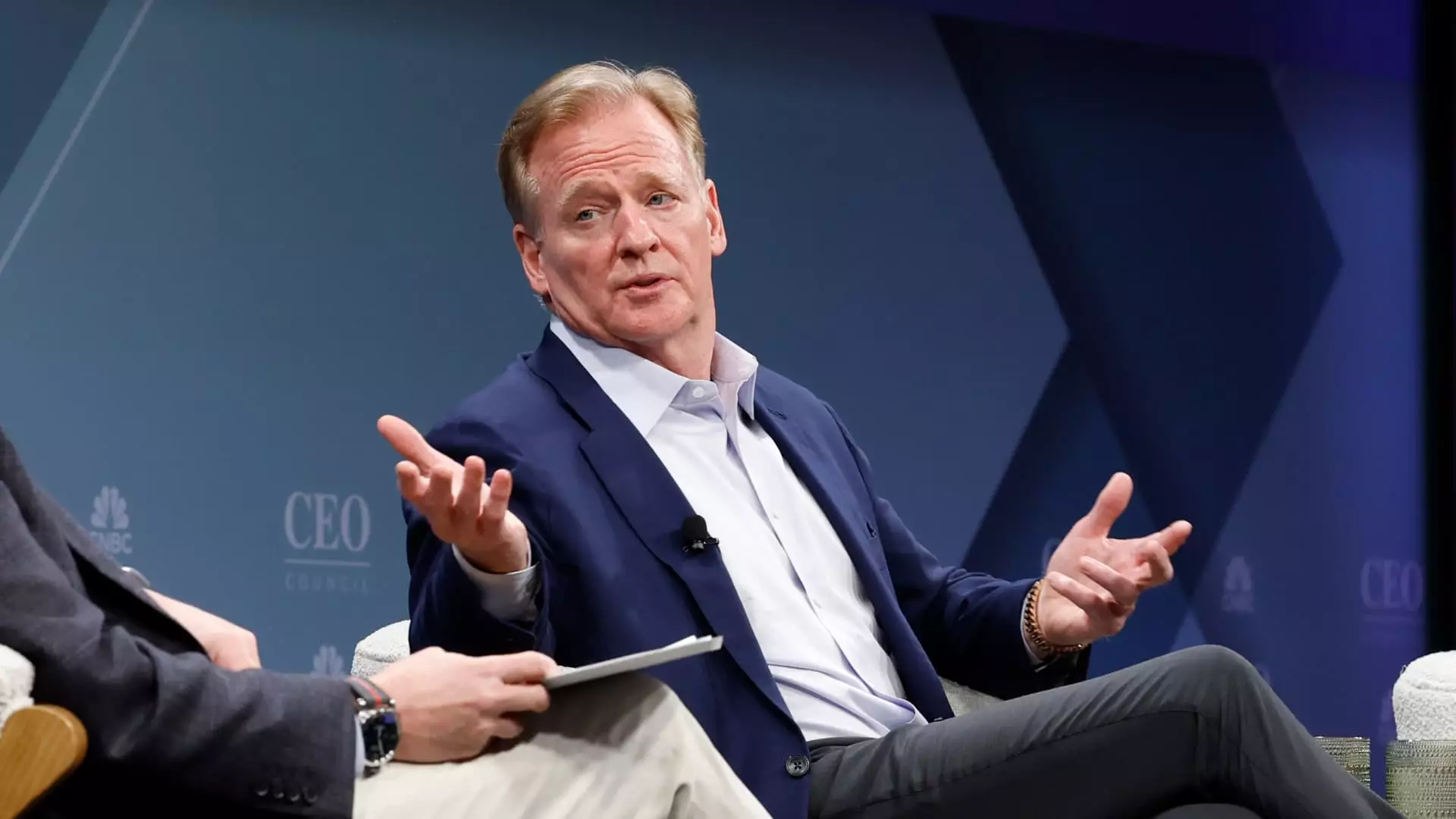In a striking proclamation, NFL Commissioner Roger Goodell unveiled plans for a revolutionary expansion of the league’s international presence, potentially reaching an astounding 16 games abroad each season within just five years. While the strategy may evoke excitement among fans, it also raises crucial questions about the implications for both the league and the sport’s integrity. The NFL, which already features an impressive seven international games scheduled for 2025—an unprecedented count—has set its sights on broader horizons. But is this ambitious endeavor a bold step into globalization or a reckless gamble to chase profits?
Goodell, who recently participated in the CNBC CEO Council Summit alongside key figures including Marriott’s CEO Anthony Capuano, certainly displayed a profound enthusiasm for this initiative. “International is an open market for us,” he remarked. This statement emphasizes the NFL’s grasp of a vast potential customer base, with 200 million American fans as a proven foundation. However, this enticing projection must be scrutinized against the realism of logistics, fan engagement, and sustaining the quality and identity of American football on foreign soil.
The Commercialization of Sports Travel
Accompanying Goodell’s declaration, Capuano elaborated on the lucrative sports travel sector, which is reportedly valued at over $50 billion annually and constitutes a staggering 10% of global tourism. The marriage of marquee sporting events and travel dollars paints an attractive picture for the NFL as they dive deeper into international competition. The partnership with Marriott as the league’s official hotel partner showcases an emerging synergy that could fortify both the league’s coffers and enhance fans’ experiences when they travel to support their teams abroad.
However, this focus on profitability prompts concerns about the potential commercialization of a sport that has deep cultural roots in the United States. Will the NFL sacrifice its traditional values in pursuit of international expansion, and will the game become just another product in the global marketplace? As patriotic fans, we must consider whether the essence of American football will be lost in translation as it attempts to appeal to foreign markets.
Private Equity: A Double-Edged Sword
Delving deeper into the NFL’s financial landscape, Goodell acknowledged the growing influx of private equity investment, which has recently become a reality for franchises. The league is unique in allowing firms to take up to a 10% stake in teams—a powerful shift that can significantly influence team management and culture. A consortium referred to as “The Avengers,” composed of renowned investors, has jumped on this bandwagon, raising the stakes for both teams and fans alike.
While the infusion of capital has been labeled advantageous, it also poses existential questions about the future direction of franchises. Are we prepared for the ramifications of financial capital shaping the sporting ethos? The rapid rise in team valuations, with the average club now fetching around $6.49 billion, may seem spectacular, but it distracts from the core values of teamwork, legacy, and community that the NFL traditionally embodies. Are we willing to disregard the spirit of the sport to appease investors and fuel revenue growth?
The Economic Landscape: A Stable Demand?
In the face of broader economic pressures such as persistent inflation and changing consumer sentiment, Goodell’s belief that the NFL will largely remain unaffected is contentious. His assertion that there is still “great demand” for NFL content seems overly optimistic given the varying circumstances facing American consumers. Can we genuinely affiliate the allure of professional sports with the economic realities that most fans are grappling with daily?
While the NFL has indeed proven resilient, its trajectory in these uncertain times warrants skepticism. It risks becoming alienated from the everyday struggles of its supporters if it focuses solely on expansion and capital generation. The disconnect between high-level finance and the fan experience could foster resentment among those who view their passion for the game as a deeply rooted part of their identity.
Through Goodell’s ambitions, the pathway towards an international NFL may be exciting, yet it requires an honest assessment of what that really means for the integrity of the game and its connection to American culture.

